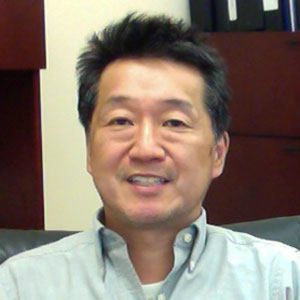Marcelo Kuroda

Tel:
Fax:
E-mail:
Career History & Research Interests
Dr. Marcelo Kuroda serves as Chair of the Division of Immunology at the Tulane National Primate Research Center (TNPRC) and is Professor of Microbiology and Immunology at Tulane University, School of Medicine. He earned his M.D. degree from La Plata University, School of Medicine, Argentina in 1988 and Ph.D. degree from Kumamoto University, School of Medicine, Japan in 1994 under the supervision of Dr. Shinji Harada (who is currently President of Kumamoto University). He completed post-doctoral work at Harvard University with Dr. Norman Letvin and then was promoted to Instructor (1998) and Assistant Professor (2000) of Medicine at Beth Israel Deaconess Medical Center, Harvard Medical School. In 2004, he was recruited to the TNPRC and has continued to build upon his research interests in the fields of HIV/AIDS biology and immunology, using the simian immunodeficiency virus (SIV) rhesus macaque nonhuman primate model. Research accomplishments include construction of the first rhesus macaque MHC class I and II tetramers that helped expand our understanding about SIV infection and disease pathogenesis, as well as contributed to AIDS vaccine development. Based on many years' experience in nonhuman primate immunology, flow cytometry and development of novel immunologic tools, his research program has expanded to investigating the relevance of innate immunity in the resistance and pathogenesis of SIV/AIDS. It is widely accepted that destruction of CD4+ T cells is the primary cause of AIDS and death from HIV-1 infection in humans. Results from the Kuroda lab have demonstrated for the first time that, not only CD4+ T cells but perhaps more importantly macrophage destruction, are keys to the progression and development of AIDS. These studies showed that the AIDS virus massively destroys macrophages but that their decline was not readily evident due to a rapid and efficient feedback from the bone marrow to replenish the destroyed macrophages. This was further demonstrated by the dramatic increase in blood monocyte turnover rates that better predicts progression to AIDS than declining levels of CD4+ T cells and provides direct evidence that cells other than, or in addition to CD4+ T cells may play a role in the development of AIDS during HIV infection. These findings help to explain why damage to this arm of the innate immune system was not previously reported and, more importantly, why the manifestation of AIDS following HIV infection may be delayed in some individuals despite the presence of a high viral load and low CD4+ T cell count. Recent data also showed that specific lung macrophage populations play distinct roles in the pathogenesis of pulmonary disease during SIV infection. For example, results suggest that short-lived macrophages contribute to AIDS pathogenesis whereas long-lived macrophages may contribute to establishing a long-term virus reservoir and promoting chronic inflammation. Studies continue to examine the role of macrophages in the mechanism of rapid disease progression in pediatric and geriatric AIDS, pathogenesis of lung disease in AIDS, establishment of virus reservoirs, approaches to remove the viral reservoirs, and mechanisms in the reactivation of TB using the TB/SIV co-infection model.




